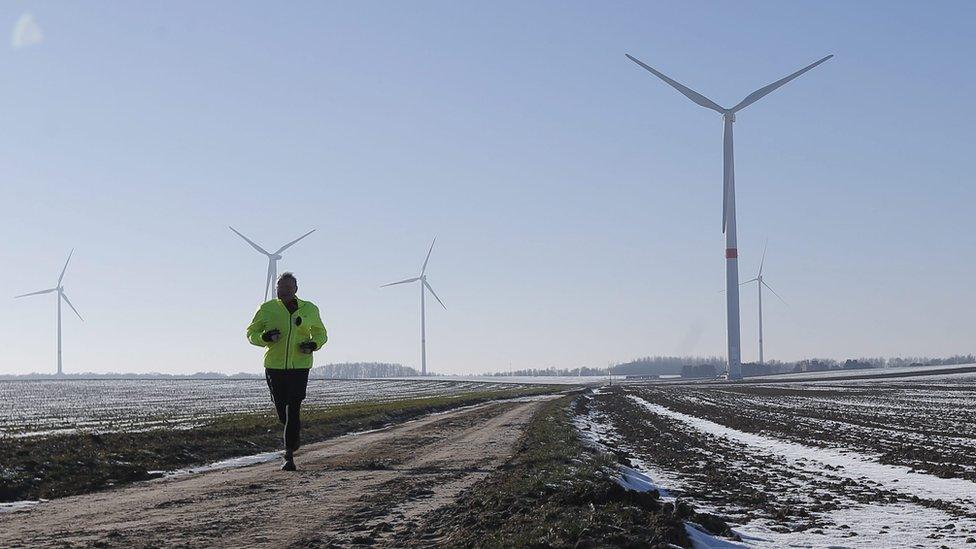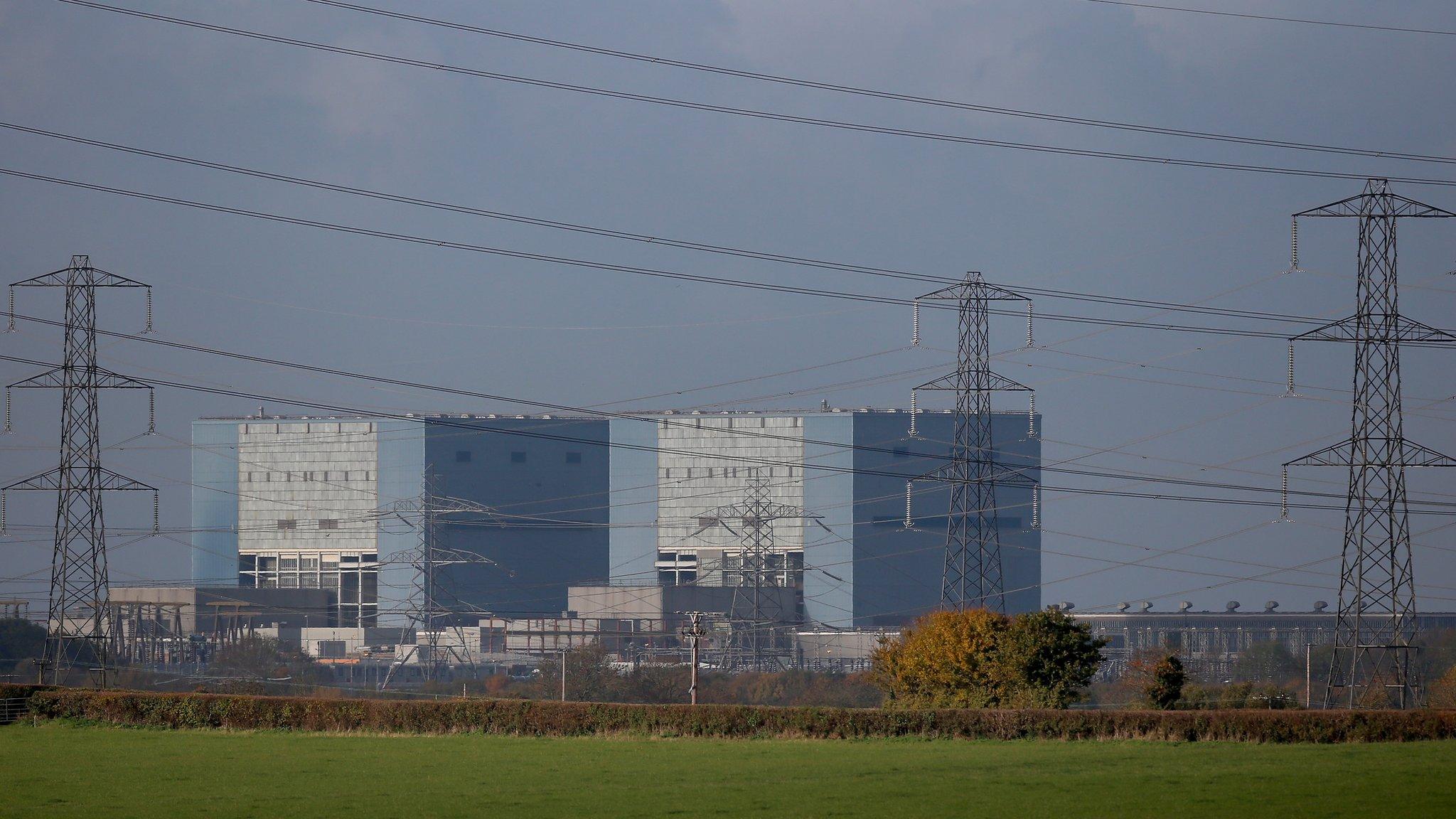Government criticised over transparency of energy schemes
- Published

MPs have said the government must do more to demonstrate the value for money of green energy schemes which are ultimately paid for by bill payers.
The influential Public Accounts Committee (PAC) said it was promised in 2014 an annual report on the impact of these policies on energy bills.
But it has not seen once since.
The PAC also repeated previous concerns about over-optimistic forecasting in the Department for Business, Energy and Industrial Strategy (BEIS).
The government's Levy Control Framework is supposed to control the cost of three low-carbon generation schemes, funded by levies on energy companies, which consumers pay for through their energy bills.
The PAC concluded that the framework had "suffered from a lack of transparency, rigour and accountability" and the forecasting of its costs had been poor.
The three schemes are:
The "renewables obligation", which requires energy suppliers to either meet targets for buying a proportion of their energy from low-carbon generators, or pay a fee for any shortfall
"Feed-in tariffs," which support small-scale renewable energy generators
"Contracts for difference", which helps new low-carbon generators through long-term contracts between them and a government-owned company, which guarantee the generators a set price for electricity
The PAC said the department "significantly underestimated" the costs of the three framework schemes
It also said the BEIS "continues to expect to overspend the Framework budget".
Because of this, the cost of the three schemes will be £110 per household per year from 2020, £17 more than planned, according to the committee.
'Not good enough'
Committee chairman Meg Hillier said: "Bill-payers deserve to know whether or not the energy schemes they fund represent good value for money."
"The government has failed to meet its commitment to report annually on the impact these policies are having on bills. Current arrangements just aren't good enough.
"Government must take action to address this and also ensure customers can see clearly what they are paying towards existing and future schemes through their bills," she added.
The BEIS said the government would respond to the PAC's recommendations "in due course".
However, it said it took action last year to "revise renewable energy subsidies, external to ensure customers are protected from higher energy bills".
"The strong, decisive action we took reduced projected costs by over £500m to protect people's household budgets and ensure value for money while delivering more environmentally friendly energy," added a BEIS spokesperson.
- Published7 February 2017

- Published29 September 2016

- Published14 July 2016
